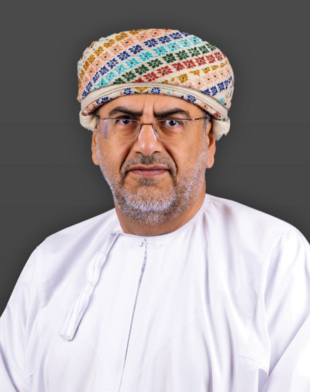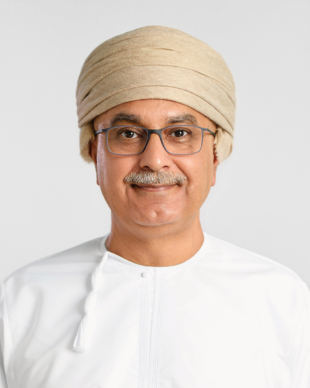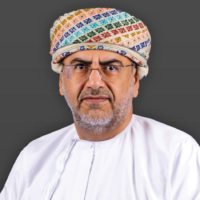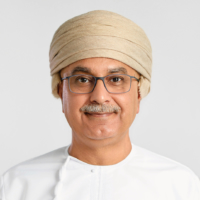With digitalization a key pillar of its economic transformation agenda, Oman is actively driving innovation across numerous sectors. This has led to the government investing heavily in digital infrastructure, including telecommunications, government services and the development of the digital economy.
It has also introduced various strategic initiatives to achieve the overarching goal of increasing the contribution of the digital economy to gross domestic product from its current rate of 2% to 10% by 2040.

“Oman is advancing its transition to a knowledge-based economy with a focus on building a thriving digital economy. This is being driven through the National Digital Economy Program and the National Program for Artificial Intelligence and Digital Technologies,” explained Minister of Economy Said Mohammed al Saqri.
“Oman has improved its rankings in global indexes, advancing nine places in the E-Government Development Index and climbing 26 positions in the Telecommunications Infrastructure Index. We also ranked 74th in the 2024 Global Innovation Index.
“Furthermore, to achieve our goal of the digital economy contributing 10% of GDP by 2040, we are implementing several initiatives, including our smart government program, upskilling 10,000 information technology graduates and equipping school graduates with essential digital literacy skills. Additionally, we’re expanding research and development funding in collaboration with the Ministry of Higher Education to foster a knowledge-based economy driven by innovation,” al Saqri said.
Oman also hopes to leverage the latest advancements in technology to accelerate the transition to a sustainable energy future. This has led to the sultanate exploring ways to improve existing technologies like solar and wind power, as well as the development of new energy storage solutions. “We aim to invest in renewable energy, particularly solar and wind, to integrate sustainability into our economy. By 2030, we plan to produce at least 1 million tons of green hydrogen, reducing our reliance on hydrocarbons,” he said.
“This will also open up opportunities in manufacturing, including the production of solar panels and wind turbines. Oman will need 40 million solar panels and numerous turbines by 2030.”
Innovation also plays an important role in transforming Oman’s financial landscape, as there is a growing appetite for digital financial services and alternative financial solutions. This has led to Bank Muscat introducing a host of digital transformation initiatives, including leveraging fintech to enhance customer experience and operational efficiency.

“Bank Muscat is strongly aligned with Oman Vision 2040, serving as a pillar of financial strength and innovation. With over $36 billion in assets, a 34% market share, and 190 branches, we ensure accessible banking across Oman,” said Waleed al Hashar, CEO of Bank Muscat. “We are at the forefront of digital transformation, leveraging advanced fintech to deliver seamless, secure and efficient services. We prioritize convenience, giving customers the ability to manage their finances anytime and from anywhere.
“Our digital initiatives include application programming interfaces-based integration for corporate clients, streamlining operations and enhancing service delivery. We also utilize automation and artificial intelligence to optimize back-office processes and boost customer service efficiency.
“To stay ahead of emerging trends, we actively collaborate with local and international fintech firms. This includes accelerator programs for prototype development, participation in tech expos, and strategic investments in fintech innovation. These efforts ensure we remain agile, responsive, and aligned with evolving customer needs in a fast-changing digital landscape,” he said.
Determined to support Oman’s ambitious plans for the future, Bank Muscat is not just introducing a new range of digital services but also empowering micro, small and midsize enterprizes.
“Bank Muscat continues to lead with a broad range of customer-focused services. Digital transactions rose by 44.8% from 2023 to 2024, reflecting strong demand for our digital services. In corporate banking, we serve MSMEs, large businesses, and government clients with tailored lending, transaction banking, and working capital solutions — now enhanced by digital tools like e-mandates,” al Hashar said.
“Bank Muscat also plays a vital role in empowering MSMEs. Through our Al-Wathbah Academy, we help entrepreneurs gain essential skills and practical tools to grow their businesses. We’ve also developed tailored financial products to boost MSME inclusion, earning international recognition.”
https://info.japantimes.co.jp/international-reports/pdf/20250625B-GI_Oman.pdf
https://global-insight.net/




